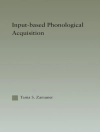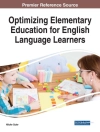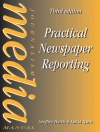This edited collection explores the use of Exploratory Practice (EP) by language teachers in classrooms. Written by practitioners, the chapters showcase unique examples of each principle of EP, with topics ranging from mentoring practitioner researchers, to teaching and learning in EAP, and investigating curriculum development in language teaching programs. The book provides example EP studies and gives voice to practitioners’ experiences of the challenges they experienced as well as the benefits. Examples include tackling intercultural communication in linguistically and culturally diverse classrooms; pedagogy and curriculum design in language teaching; explorations of continuing professional development in language education. In doing so, it offers tools that can be transferred to other classroom contexts and used to aid teacher development. The concluding chapter highlights critical aspects of Exploratory Practice which emerge in the studies and examines how practitioners advanced their understandings. This book will appeal to those working in Applied Linguistics, TESOL research, as well as language teachers and teacher educators.
สารบัญ
Introduction: Mentoring Language Teaching Professionals in/through Exploratory Practice; Judith Hanks and Kenan Dikilitaş.- Chapter 1: Exploratory Practice: Innovations and Explorations in Language Education; Judith Hanks and Kenan Dikilitaş.- Chapter 2: Enacting Exploratory Practice Principles: Mentoring Language Teaching Professionals; Wayne Trotman;.- Chapter 3: Investigating and Understanding ‘Free Reading’ Experiences through Exploratory Practice; Talip Karanfil.- Chapter 4: Investigating Self-reported Reading Comprehension via Exploratory Practice; Onur Ergünay.- Chapter 5: Understanding the Challenges of Academic Presentations for EAP Students: An Exploratory Practice Approach; Simon Mumford.- Chapter 6: Intertwining Exploratory Practice with ‘Standard’ Research Practices in Foreign Language Education; Gamze Öncül and Rhian Webb.- Chapter 7: Exploratory Practice as a Way of Fostering Learner Autonomy; Kerim Biçer.- Chapter 8: The Role of Exploratory Practice and International Collaboration in Creating a Democratic Classroom; Rhian Webb and Troy Sarina.- Chapter 9: Why Do Students Consider Integrated Skills Lesson as a Grammar and Vocabulary Lesson?; Betül Doğdu and Dilek Arca.- Conclusions: Developing in/through Exploratory Practice; Kenan Dikilitaş and Judith Hanks.
เกี่ยวกับผู้แต่ง
Kenan Dikilitaş is Assistant Professor in the ELT department at Bahçeşehir University, Turkey. His primary research interests include English language teacher education and teacher professional development. He has published articles and books on action research and teacher research, and conducted several teacher research projects with local teachers.
Judith Hanks is Associate Professor at the School of Education, University of Leeds, UK. Her research interests lie in the areas of Exploratory Practice (a form of practitioner research), language learning and teacher education, continuing professional development, and intercultural issues in language education.












